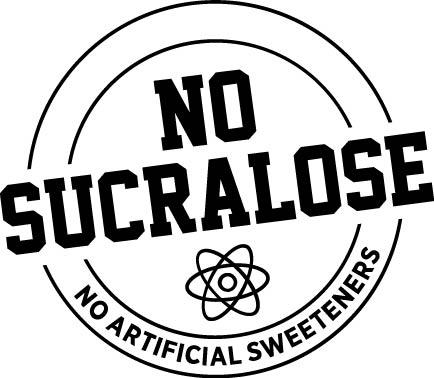The Hidden Dangers of Sucralose on Your Health
In a world full of artificial sweeteners, sucralose has become a popular choice for those seeking a sugar substitute with zero calories. However, emerging scientific evidence and expert perspectives are revealing the truth about sucralose and its potential health risks. Hidden in thousands of items lining the grocery aisle shelves, it's a sneaky and silent killer. Take a look at these alarming findings that share how it can wreck your well-being.
DNA Damage and Genetic Disruption
Recent research confirmed the connection between sucralose consumption and DNA disruption. A Newsweek article highlights the study that links the fake sugar found in food and beverage products to DNA fragmentation, a process that damages the genetic material within cells. This damage has raised concerns about potential long-term consequences: DNA disruption can contribute to various health issues, including cancer and genetic disorders. Such findings underline the need for further investigation into the safety of sucralose, and the importance of being aware of what you put into your body.
Sucralose Alters Gut Microbiota
The impact of sucralose on gut health is another alarming matter. The US Right to Know organization reports artificial sweeteners negatively affect gut microbiota, or flora. This leads to imbalances in the microbiome, otherwise known as the bacteria that makes up your gastrointestinal (GI) tract. These imbalances contribute to digestive issues, metabolic disturbances, difficulty with mood management, and a weakened immune system response. Given the pivotal role of a healthy gut in overall well-being, the potential disruption caused by sucralose is cause for concern.
Disruption of Metabolic Responses
"Sweet Deception" by Joseph Mercola delves into the metabolic implications of artificial sweetener consumption. The book highlights how the intense sweetness of sucralose may mislead the body's metabolic responses. The brain's reward centers might be activated by the sweet taste, prompting individuals to consume more calories than needed. This phenomenon could lead to overeating, weight gain, and even insulin resistance, which is a precursor to type 2 diabetes.
An insightful podcast episode titled "Artificial Sweeteners: Are They Safe?" by Dr. Aviva Romm, explains the cautions of sucralose on metabolic health, backing up Mercola. She cites research that indicates artificial sweeteners interfere with the body's ability to regulate blood sugar levels. As a result, regular consumption of these additives might contribute to insulin resistance and an increased risk of type 2 diabetes. Newer research shows this may even be an antecedent to Alzheimer’s Disease, AKA “Type 3 Diabetes”.
Sucralose and Cardiovascular Concerns
A comprehensive report from NBC News highlights the potential link between artificial sweeteners and cardiovascular health. Studies suggest the consumption of artificial additives may be associated with an increased risk of heart disease, stroke, and other cardiovascular problems. The exact mechanisms behind these correlations are not fully understood, but the evidence warrants careful consideration when picking sweeteners for your foods and beverages.
Impact on Taste Preferences and Cravings
Joseph Mercola's book also addresses how sucralose can alter taste preferences. Regular consumption of intensely sweet substances desensitizes taste receptors, making naturally sweet foods, like fruits, less appealing. As a result, people have more cravings for sugary and calorically-dense options. This shift in taste preferences may contribute to unhealthy nutritional habits and weight gain over time.
Beware and Be Aware
While sucralose has been marketed as a “safe” sugar substitute, emerging scientific research and expert insights suggest a different narrative—one that raises red flags about its potential impact on health. The relationship between sucralose consumption and DNA damage, alteration of gut microbiota, disruption of metabolic responses, cardiovascular issues, and taste preference changes is collectively unsettling.
As consumers, it's critical to be informed about the potential risks associated with artificial sweeteners. Staying informed can help us make better, more conscious choices about the foods and additives we incorporate into our diets. Consider opting for natural sweeteners, or whole foods, to support longevity. For these reasons, FITAID is crafted with high quality, natural ingredients that support healthy lifestyles. All of our blends are free from artificial sweeteners and flavors.
All natural, all for you!
